As a Jew, I Need To Talk About Five Movies That Personally Help Me Cope With the Horrors of WWII
Movies can be the best dose of medicine.
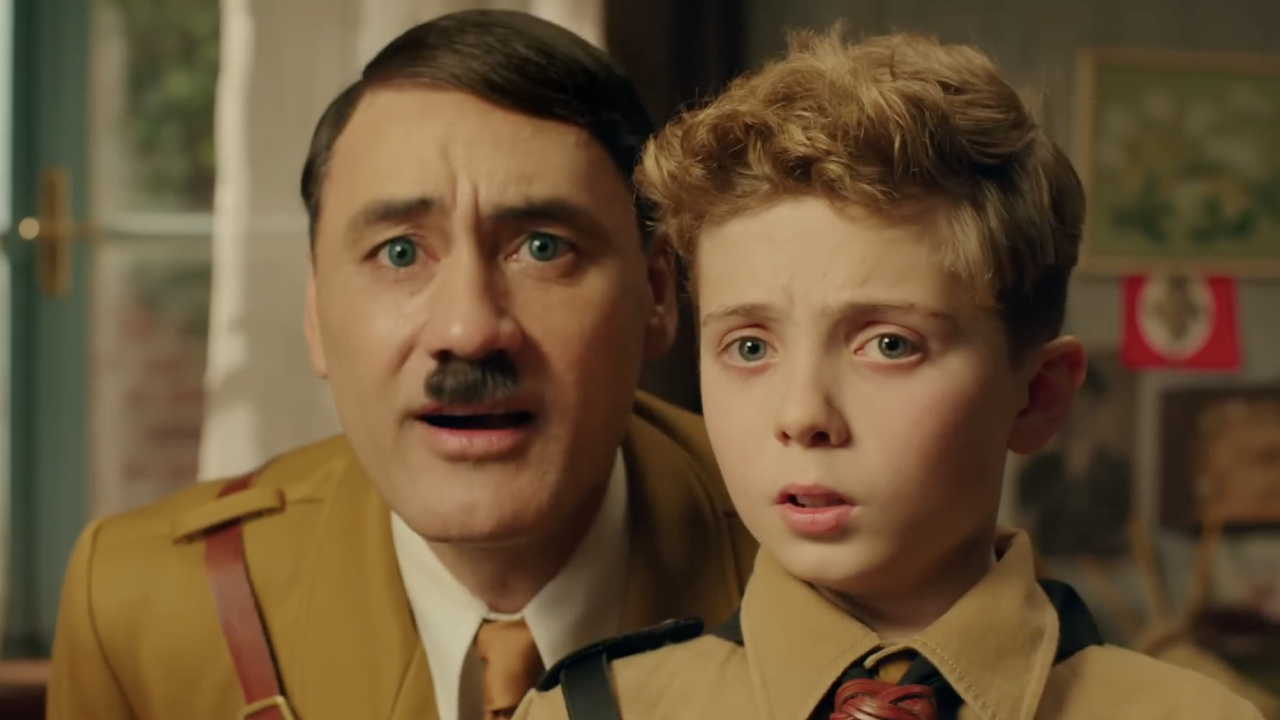
Hebrew school and middle school were where I learned about the murders of six million Jews during the Holocaust. It’s always been scary for me to learn what happened to my people and what true evil is capable of. While World War II movies like Schindler’s List and The Pianist portray the brutal realism of the Holocaust, I also prefer WWII movies that know how to balance the horror of that dark time with moments of humanity. As a Jew, I have to talk about five movies that have personally helped me cope with the horrors of WWII.
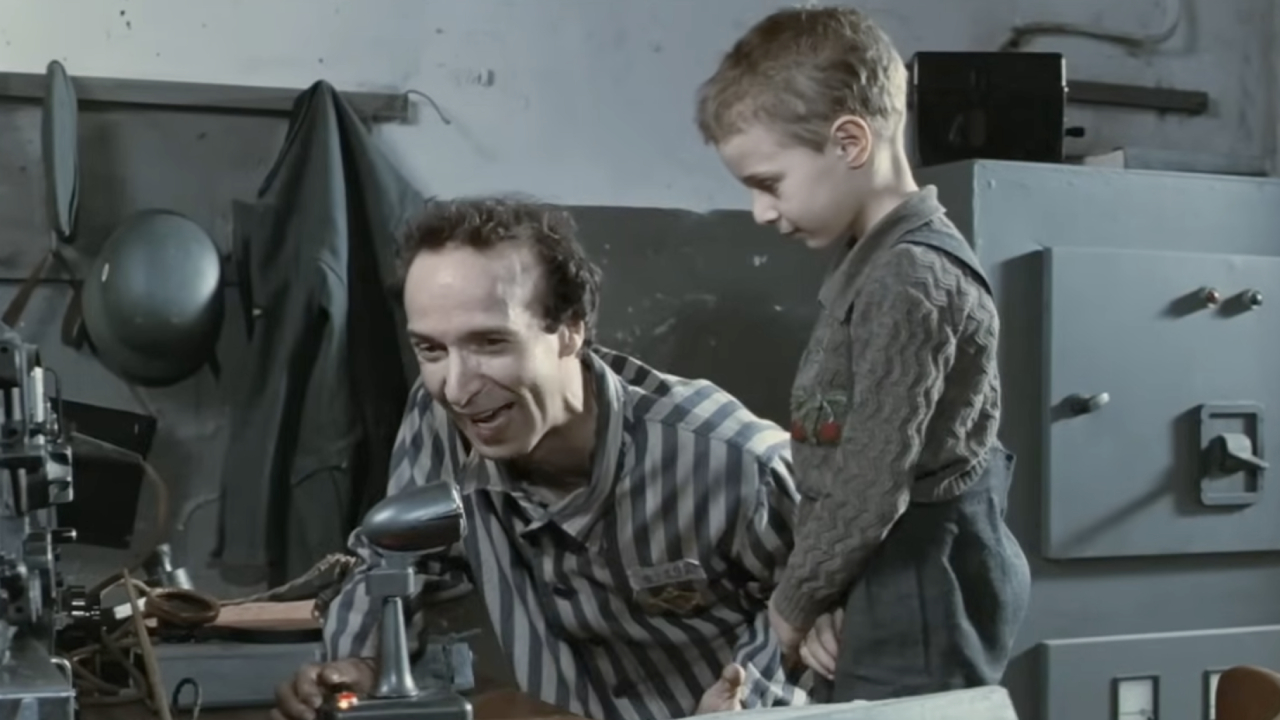
Life Is Beautiful (1997)
When one of the greatest Italian movies, Life is Beautiful, first came out, critics didn’t like seeing comedy shown in a Holocaust story. What reviewers may not have realized was that the film's comedic elements were not meant to be the least bit offensive. Director/actor Roberto Benigni used humor to mock the horrific practices of Nazis. One example was when his character, Guido, gave a fake translation of the Nazi’s orders to protect his son while they were in a concentration camp.
In Life is Beautiful, starting out with Guido and Giosuè being taken to the concentration camps, we’re introduced to our lead characters as everyday people. We see the comical and smart Guido woo a beautiful teacher and start a wonderful family with her before the Nazis sent Jews to the camps.
Another reason why Life is Beautiful melts my heart is the riveting father/son story. When Guido and Giosuè got arrested, the loyal father pretended they were participants in a game who gained points by hiding from the guards and keeping quiet, with the winner going home in a tank. He did this to shield his son from the atrocities of the camps. By the end of the movie, I saw myself crying warm tears with a mix of sadness for those who didn’t survive in the camps and happiness for those who did.
Life is Beautiful is streaming on your MGM+ subscription.
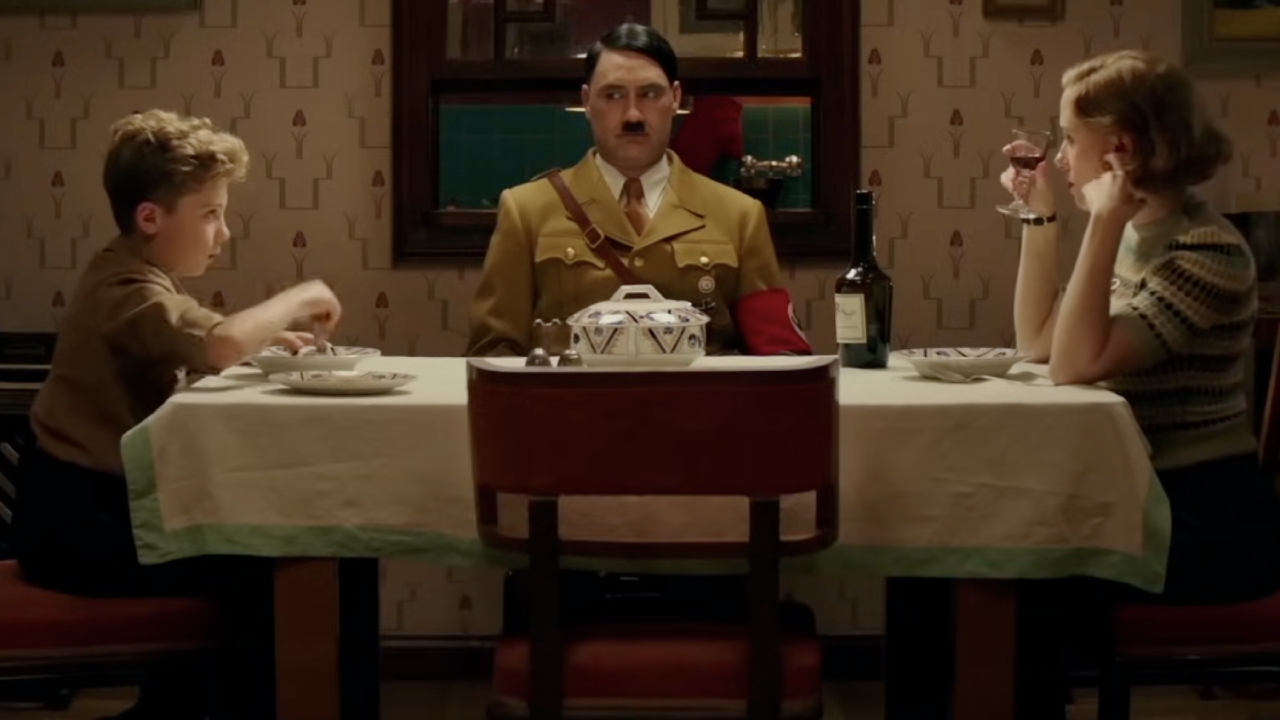
Jojo Rabbit (2019)
Another WWII movie that uses satire to portray Nazism is Jojo Rabbit. Director and actor Taika Waititi portrayed a goofy version of Adolf Hitler who was the figment of a young Nazi youth’s imagination. The New Zealand filmmaker felt that comedy was the best approach to tell the story of WWII as a new way to get audiences to learn about the horrors of that dark period.
Comedy truly was a genius approach as Taika Waititi’s version of Hitler was like a parody of the German dictator and better highlighted the Nazi party leader’s lunacy and inhumanity. The same went for all of the other Nazi characters whose gun-crazy, over-the-top attitudes towards their dedication to their regime made them look ridiculous more than feared.
Your Daily Blend of Entertainment News
Jojo Rabbit was also refreshing for me to watch, seeing the transition of Jojo’s dangerous beliefs. He was originally forced to believe that killing Jews was for the good of Germany until he built a connection with a Jewish girl his mother hid in their home. We see Jojo was just a confused kid whose love he had for his mother and friendship he built with his new friend wouldn’t be behavior a Nazi would commit. While the human cost of hate came in full force, we also witnessed the healing power of empathy.
Jojo Rabbit is streaming on your Hulu subscription.
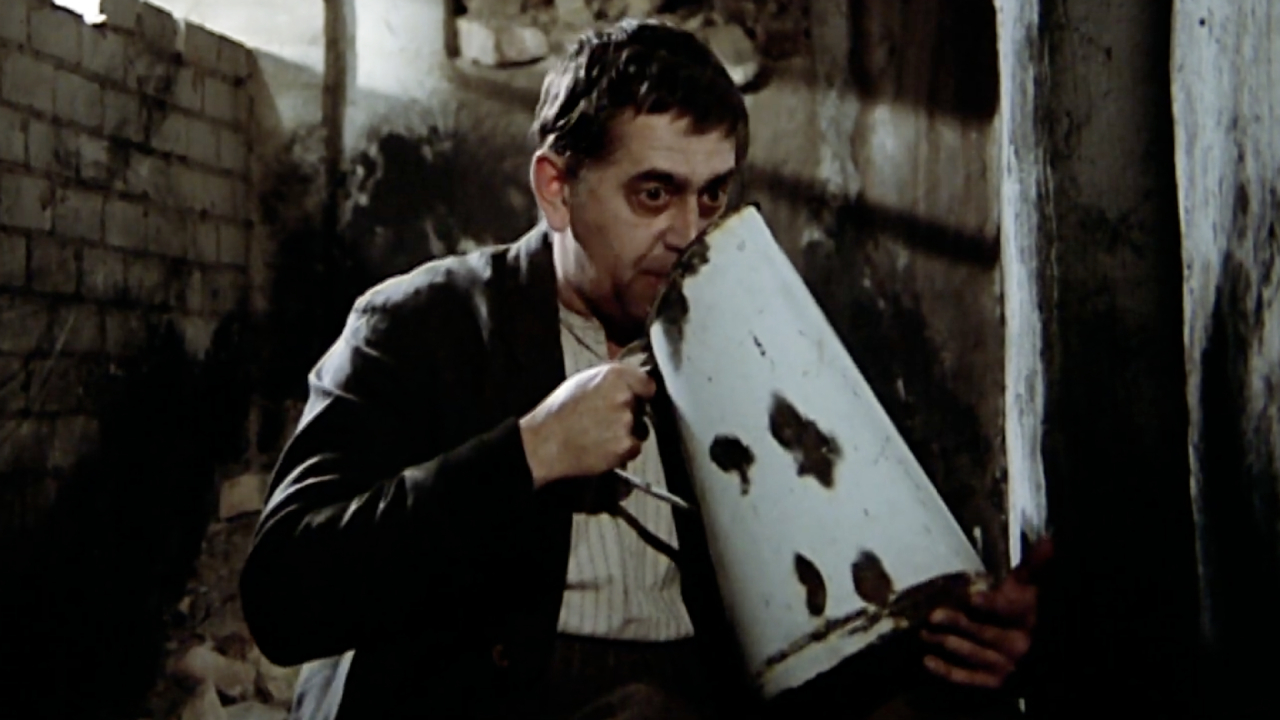
Jacob the Liar (1975)
The German war film Jacob the Liar may not be a comedy, but it still brings out some feel-good vibes. In the ghetto of German-occupied Poland, Jakob saved his friend from taking his own life by telling him of a news report he heard about the Soviet Army making its way towards Germany for liberation. After that piece of news brought hope to the ghetto, Jakob decided to give everyone fake news to give people hope.
The character of Jakob may not have been a fighter or a revolutionary. However, he committed the heroic act of giving people in the ghetto something to look forward to. Poland being occupied by the Nazis still stood, but the world looked a little brighter to everyone who listened to Jakob. The film's lead character even brought joy to a little girl he took in, Lina, who listened attentively to Jakob’s stories and no longer felt scared. The movie raised the ethical question of whether telling lies is wrong if they can save a person’s life.
Jakob the Liar is available on your Kanopy subscription.
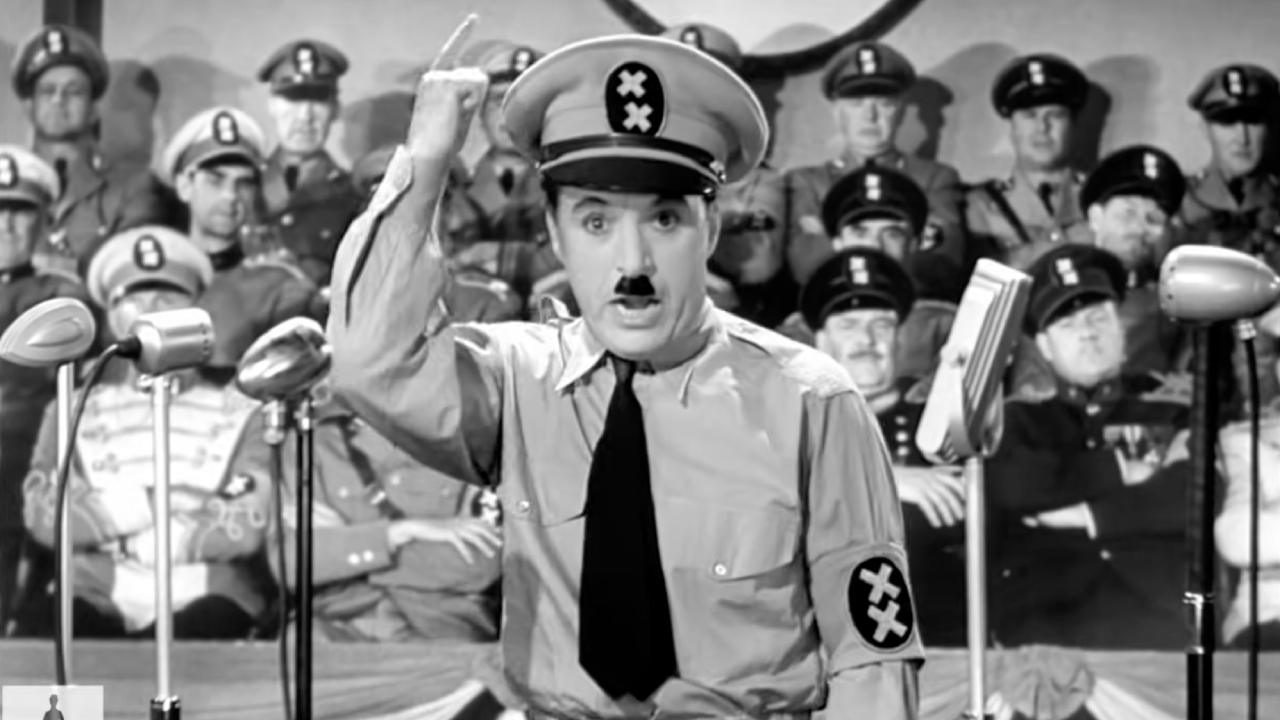
The Great Dictator (1940)
If any classic actor who dominated the '20s and '30s is capable of making you laugh, it’s filmmaker Charlie Chaplin. The English comic may not have known Hitler’s full atrocities when he made The Great Dictator, but it’s still a great satire of the power-hungry Nazi leader.
In one of the best dual-role comedies, Charlie Chaplin portrayed both a persecuted Jewish barber and the cold-hearted dictator of the fictional country of Tomainia, Adenoid Hynkel. The silent film star didn’t hold back in this, his first "talkie," making fun of Hitler’s well-known traits like his salute, as well as creating a nonsensical language for him. Despite The Great Dictator being Chaplin’s first sound film, his physical comedy still came into play through satirizing Hitler, like the iconic scene where Hynkel humorously waltzed with a globe.
One important scene that can easily make me smile isn’t comedic, but one of the most powerful speeches I’ve heard in a movie. As the Jewish barber disguised himself as the Tomainian dictator, he delivered a speech with its meaning still resonating today about a deep need for the end of tyranny, racism, and hatred. We are left with hope to work harder at creating a more compassionate world.
The Great Dictator is available on your Max subscription.
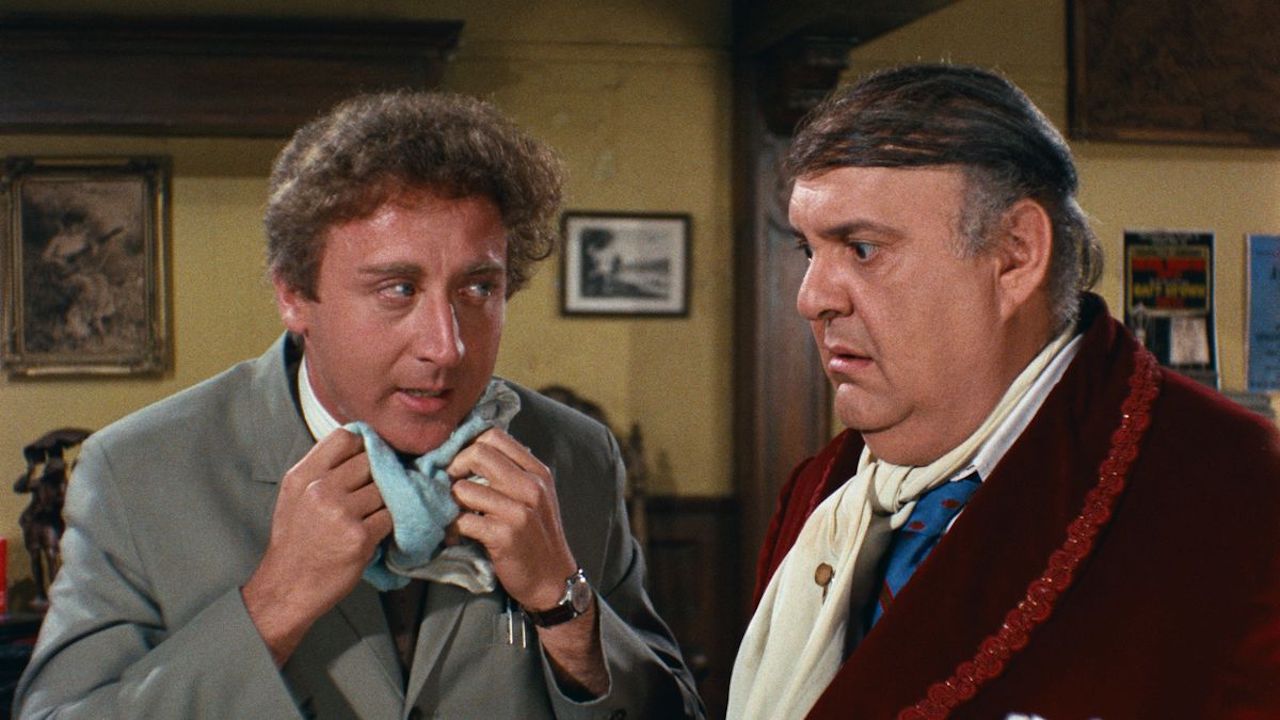
The Producers (1967)
On the first try, Mel Brooks made a really good movie called The Producers that would show audiences what a pro he is with satires. It’s definitely something to watch when you need a pick-me-up about two con men who try to cheat investors by creating a flop in hopes of keeping all of the extra money for themselves. Believing a musical glorifying Hitler would bomb, you could imagine their surprise when audiences took it as a satire and made it a hit! I guarantee you the hilarious tune “Springtime For Hitler” will stay in your head for hours after the movie.
The beauty of The Producers is Mel Brooks’ way of using comedy to dismantle the power of Nazis and rob the German dictator of his fearsome vibe. With Brooks being Jewish himself and a WWII veteran, he allowed Jewish characters to manipulate the system, outsmart everyone, and expose how ridiculous fascism was by making it laughable. This movie didn't ignore the horrors of the past, but used humor as a weapon against hate to turn Hitler into a joke so he’s never taken seriously again.
The Producers is available on your Kanopy subscription.
It saddens me whenever I think about the millions of Jews who lost their lives during the Holocaust. But when I watch an uplifting movie that takes place during that dark place in history, I’m reminded about the Jewish custom of using humor as an act of defiance. Each one of these movies helps me cope with the horrors of WWII seeing Nazis terror stripped away with farce as well as witnessing characters bring hope to those who need it.

Just your average South Floridian cinephile who believes the pen is mightier than the sword.
You must confirm your public display name before commenting
Please logout and then login again, you will then be prompted to enter your display name.
